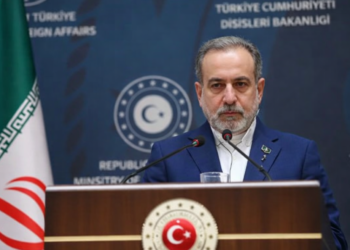So, Muhammad Yunus, the 84-year-old Nobel Peace Prize winner, is on his way back to Bangladesh. President Mohammed Shahabuddin has tapped him to lead an interim government after student protests sent Prime Minister Sheikh Hasina packing.
The students wanted Hasina gone, and now she’s in India. Protests can bring down governments. We’re still figuring it out, but Bangladesh has set a fiery example.

Calls for Calm Amidst Chaos
Before boarding his flight, Yunus urged calm from Paris, where he had been undergoing medical treatment. Yes, calm, after a political upheaval. He’s optimistic: “Let’s make the best use of our new victory.” But is calm even possible when a nation’s in turmoil?
Yunus, the brains behind microfinance, is stepping into uncharted territory. He’s “fresh in this whole area,” yet he’s the chosen one to navigate Bangladesh out of its mess. Can an economist fix a political crisis? We’ll see.

The Rush to Stabilize
President Shahabuddin is in a hurry to finalize the interim government. Student leader Nahid Islam expects it by Wednesday. The clock is ticking. Can a rushed setup bring stability?
Army Chief General Waker-Uz-Zaman believes the interim government will stabilize the country in days. He’s confident in Yunus’ ability to steer Bangladesh towards democracy. Confidence is one thing, results are another.
President Shahabuddin is shaking up the security forces. New police chief, new intelligence heads. Can new faces in high places turn things around?

Courts and Convictions
A court just overturned Yunus’ conviction in a labour case. He called it a political hit job by Hasina. The courts are busy.
The opposition, led by the Bangladesh Nationalist Party (BNP), is rallying. Their leader, Khaleda Zia, freshly released from house arrest, demands elections in three months. From her hospital bed, Zia, and her son, Tarique Rahman, call for no revenge, just swift elections.

Hasina’s ousting marks the end of her 15-year rule. Her legacy? A booming economy tainted with economic distress and public anger. The nation’s $450 billion economy grew under her, but inflation and unemployment stirred discontent.
The protests are hitting the economy hard. Ratings agency S&P warns of risks to growth and stability. Will a new government fix the damage?
Lingering Unrest
Calm may be returning, but unrest lingers. Protests at the Bangladesh Bank forced resignations over corruption. Even India is evacuating embassy staff. The situation is far from settled.
Schools and factories are reopening, but the movement that removed Hasina started with protests against job quotas.
Her critics saw them as a ploy to reserve jobs for her allies. The people have spoken, and the fallout is unfolding.

















